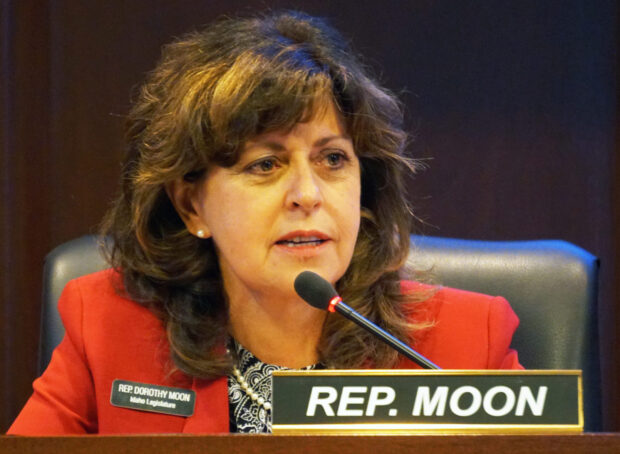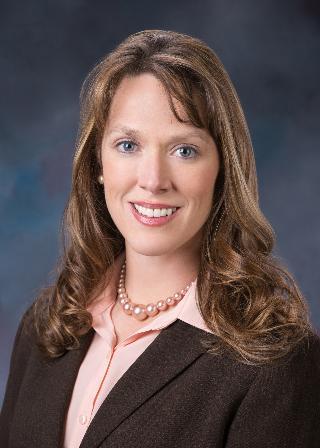The House Education Committee has passed Gov. Brad Little’s bill to raise starting teacher pay over the next two years.
House Bill 153 represents one of Little’s top education priorities — helping the state recruit and retain young teachers in Idaho.
If passed into law, the bill would raise the minimum teacher salary to $40,000 over the next two years. Originally, Little called for spending $11.4 million to raise minimum salaries in one year. However, faced with continued uncertainty over sluggish state revenues, Little tweaked his plan to reduce the impact on next year’s budget.
Now, Little is calling for spending $3.8 million next year, followed by $7.6 million in 2020-21.
“With the challenge of the withholdings issue, however, this plan is more fiscally responsible than a one-year approach,” said Greg Wilson, Little’s senior adviser for education.
During a breakfast question-and-answer session with reporters Wednesday, Little was asked about the two-year approach “Revenue was a little bit of it and also compression on the (career ladder salary law’s) grid.”
Here’s how the state would pay districts and charters for teacher salaries within the first three rungs of the career ladder:
- 2019-2020: $38,500, $39,000 and $39,500.
- 2020-2021: $40,000, $40,500 and $41,000.
Little’s bill would set minimum salaries, but districts and charters would continue to negotiate and set salaries each year at the local level.
Samantha Eichner, a Nampa fourth-grade teacher, said passing the bill would make a difference for beginning teachers. Eichner said she considered leaving Idaho for a higher salary after graduating college. When she ultimately stayed in Idaho, Eichner needed to take on three extra jobs to make ends meet.
“The time constraints these extra jobs require stretched me thin at times, especially as a new teacher,” Eichner said.
Little’s bill enjoyed widespread support from the Idaho School Boards Association, Idaho Business for Education, Superintendent of Public Instruction Sherri Ybarra and the State Board of Education, but committee members still grilled his advisers over the plan for about an hour.
Rep. Barbara Ehardt, R-Idaho Falls, expressed frustration that the bill did not do enough to address veteran teacher salaries and curb attrition.

“Personally, the emphasis is in the wrong areas,” Ehardt said.
Rep. Dorothy Moon, R-Challis, voted against the bill after saying it didn’t address hard-to-fill positions, such as special education.
“I’m in a conundrum,” Moon said.
Wilson responded by saying Little was doing his best to work within budget constraints and still make a difference for beginning teachers that could be lured across state lines with the promise of higher pay.
“Efforts like House Bill 153 aim to elevate the teaching profession in Idaho and getting starting teacher pay to $40,000 is one step in this process,” Wilson said. “It’s an important foundation.”
After a vigorous debate, Little’s bill passed out of committee comfortably, with only Moon voting against it. HB 153 next heads to the House floor with a recommendation it pass.
Vaccination opt-out bill passes — barely
A bill to require schools and day-care centers to provide immunization opt-out information survived a close vote in a House committee.

“I think it’s great, simple language that will empower the parents with more information,” said Rep. Priscilla Giddings, R-White Bird, of her House Bill 133.
But for House Health and Welfare Committee members, the issue proved to be not quite so simple. Some committee members questioned subjecting public schools and private day-care centers to the same legal mandate. Committee chairman Fred Wood, R-Burley, opposed the bill, and said he believed schools were already doing an adequate job of providing opt-out information.
But for lawmakers on both sides of the aisle, the issue boiled down to transparency — and making sure parents receive information on state immunization guidelines and opt-out rights, all in the same packet.
“The Legislature has an obligation to the public to not hide the football,” said Rep. John Green, R-Post Falls.
The ISBA opposed the bill. Executive Director Karen Echeverria said the bill was unnecessary — since ISBA helps districts and charter schools draw up exemption policies, and since Idaho already has one of the nation’s highest immunization opt-out rates. She said ISBA respects the parents’ right to choose, but she said a higher immunization opt-out rate would “put the remaining students and staff at even greater risk.”
Wednesday’s hearing was brief, and sometimes tense. Green pointedly suggested Echeverria was trying to hide opt-out information from parents. One supporter of the bill, Jinny Peterson of Meridian, said she knows of parents who have been “bullied” when exercising their right to opt out. At one point, Wood admonished another supporter, Sara Brady of Boise, for taping the hearing on her smartphone.
The bill passed on a 7-5 vote, and would have died in committee on a tie vote. Voting no were Wood and Reps. Laurie Lickley, R-Jerome; Marc Gibbs, R-Grace; Ilana Rubel, D-Boise; and Sue Chew, D-Boise.
The next step is a vote on the House floor.
Mastery expansion bill advances
In other action Wednesday, the Senate Education Committee passed Ybarra’s bill to expand her mastery-based education pilot program.
If Senate Bill 1059 passes, it would remove the cap of 20 schools districts or charters that are allowed to participate in the Idaho Mastery Education Network. Additional schools could join the network and team up with other schools for training and advise Ybarra’s State Department of Education on the transition to mastery-based education.
“There is interest from those not currently participating in the initiative, as well as those schools who already are participating but wish to expand the effort,” Ybarra told legislators.
The State Board, Idaho Business for Education and ISBA all testified in favor of Ybarra’s bill.
“It is good for Idaho and public education when we can provide more opportunities for students to benefit from programs like this,” State Board Chief Communications Officer Mike Keckler said.
During her budget hearing last month, Ybarra asked for an additional $1.4 million to expand mastery-based education. The Joint Finance-Appropriations Committee did not address the request when it wrote the public school budgets on Monday, but the committee could reconsider at a later date.
Passing the bill out of Senate Education represents a political victory for Ybarra. Last year, Senate Education killed a similar mastery education expansion bill with a near unanimous vote.
Some legislators warned Ybarra that passing her bill out of committee does not automatically mean JFAC will reconsider her $1.4 million request, especially in light of continued uncertainty over state revenues.
Ybarra seems to understand that. The fiscal note attached to the bill to expand master-based education states the SDE will expand mastery “as appropriated funds allow” rather than reiterating the call to increase funding by $1.4 million.
SB 1059 next heads to the Senate floor, with a recommendation that it passes.
Remote testimony opportunity set for Friday
On Friday, House Education will accept remote testimony from six different locations in Idaho over a bill to modify executive session requirements for school boards.
Residents of Twin Falls, Idaho Falls, Pocatello, Moscow, Post Falls and Carmen will be able to testify on House Bill 150 at one of their local regional testimony sites live during the hearing at 9 a.m. Friday.
However, anyone interested in testifying is asked to sign up 24 hours in advance, meaning the deadline is 9 a.m. Thursday. More information about remote testimony guidelines and the specific locations is available online.
JFAC sails through more education budgets
Moving quickly Wednesday morning, JFAC wrapped up several smaller education budgets.
All of the budget proposals passed unanimously — just like the much larger, and often much more controversial, K-12 spending plans that passed in committee Monday.
Here are the highlights:
Career-technical education. The $68.5 million budget reflects a 3.1 percent general fund increase. The budget includes a $200,000 line item, requested by Little, to provide grants to high-performing secondary CTE teachers.
State Board of Education. The $6.4 million office budget is virtually unchanged from the current budget. But the spending plan does move some money around. One line item is $263,000 to cover the cost of reviewing applications for the state’s new master teacher premium.
STEM Action Center. This $2.6 million general fund budget also remains virtually flat. But the center would receive $1 million in a dedicated fund, to support its computer science initiative — and the center would get the go-ahead to spend $1 million in private donations.
All of these budget proposals must pass the House and Senate before going to Little’s desk.
JFAC’s work on education issues isn’t finished. The committee still must write up budgets for Idaho’s two- and four-year colleges and universities, and decide on Little’s request to add $7 million to the college Opportunity Scholarship program. (Click here for more about that issue.)
Idaho Education News reporter Kevin Richert contributed to this report.
